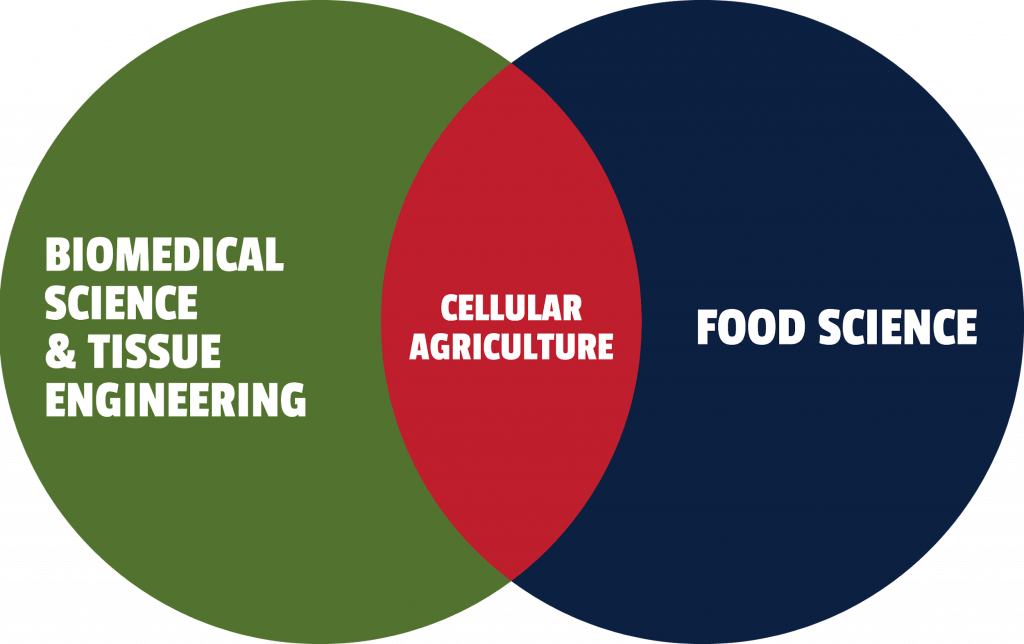Cellular agriculture
Cellular agriculture refers to production of agricultural products using cell cultures. Cellular agriculture products are part of the larger group called Alternative proteins (alt.pro). Alt.pro are proteins that can act as substitutes for traditional animal‐based food. Generally, alt.pro are classified based on the source into: Plant-based, Insect-based and Cultured meat that is produced by cellular agriculture methods. Majority of the methods for cellular agriculture stem from the tissue engineering and biomedical field, while the application of the products generated by cellular agriculture falls predominantly into the food science.
Cultured meat is the main type of alternative proteins BioSense addresses. One of the main challenges for scaling up the cultured meat production to the industry levels is concerning the overall costs of production. The highest portion of costs (up to 80%) for cultured meat production is for the cell culture medium and fetal calf or bovine serum. The challenge to decrease expenses is not only in designing low-cost cell culture medium formulations, but also in developing methods to optimize the bioreactor design, instrumentation and to include monitoring features via sensors for the maximum cell production capacity per unit medium volume.
In that sense, we focus our research on optimizing procedures for generating cellular products, and we closely collaborate with the Center for sensing technologies regarding development of sensors for monitoring of key parameters in cultured meat bioprocess: Biomass concentration, a key variable in cell cultures and Concentration of key nutrients – glucose and glutamine and their main metabolites, lactate and ammonia, that can inhibit the cell growth. Sensors are tested using “miniaturized” bioreactors i.e. microfluidic model and Lab-on-a-chip (LOC) principle, which will be scaled up to the bioreactors of larger volumes.
Projects:
REALSENSE1 – Monitoring of cell culture parameters using sensors for biomass and nutrients/metabolites in media: Lab-on-a-Chip (LOC) approach, 2019-2021; Good Food Institute Inaugural Competitive Grant Program.
REALSENSE2 – From lab-on-a-chip to custom bioreactor: scale up modeling study, 2020-2022 Good Food Institute Competitive Grant Program
